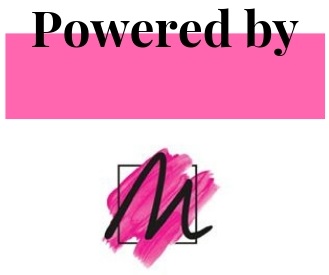A square jaw, strong brow, thin lips and a broader nose are seen as signs of talent and competence, a new study has found.
The features, associated with increased levels of the male hormone testosterone, are seen as assertive and markers of virility indicative of professional prowess.
Members of the public were asked to rate images on a range of criteria, with men scoring more highly for competence than women.
Experts say their study highlights the prejudice ingrained in society that women face on a daily basis.
First author Dr DongWon Oh, from Princeton University, said: ‘Our research sheds light on the pernicious gender bias in how we perceive others.
‘We judge masculine looking people as competent – a judgement that can affect our leadership choices.’
High levels of testosterone lead to the ultra-masculine look of George Clooney or Idris Elba, whereas less of the hormone produces the softer features of Leonardo DiCaprio or Brad Pitt.

(c) Instagram
Increased testosterone levels was found to be directly correlated with perceived competence in men.
However, the same trait in women created a view that they were ‘inefficient’.
Dr Oh said this is important as it affects who we choose to lead us and how we see them.
For example, previous studies have shown individuals with rugged jawlines are more likely to become high-ranking politicians or heads of large companies.
But Dr Oh said: ‘Problematically, how competent someone appears does not guarantee their actual competence.
‘Needless to say these gender biases pose a threat to social justice – creating unfair environments for everyone.’
Dr Oh and colleagues assessed the ‘visual ingredients’ that influence how people view another person’s talent level on appearance alone.
Participants in a study were asked to rate a variety of different faces on how competent they thought the person was based on appearance alone.
By collecting and breaking down all the data they were then able to identify the features which were most heavily associated with competence.
They then built a computer model that allowed them to digitally alter faces based on these specific guidelines.

One experiment involving 33 participants found faces designed to look more efficient were rated as such – and as more attractive.
Dr Oh, of Princeton University in New Jersey, said: ‘Using the computational methods we developed for visualising appearance stereotypes, we can literally remove the attractiveness of the competent-looking faces.
‘We can then test whether ‘competent’ faces still appear competent and inspect what visual properties other than attractiveness drive the competence impressions.’
Another online test revealed a clear gender bias. When asked to identify the gender of faces participants tended to rate more competent looking ones as male.
Finally the researchers manipulated ‘photo-realistic’ images of male and female faces so they varied in masculinity and got 250 participants to rate their competence online.
Again, the data suggested a gender bias in first impressions. As male faces increased in masculinity, so did their perceived competence.
For female faces this relationship only held up to a point – after which more masculine female faces were actually perceived as less competent.
Dr Oh and colleagues hope to expand on the study published in Psychological Science by exploring the origins of this gender bias and how it could be combated.
They are also investigating whether there are systematic differences in the impressions we have of male and female faces.
-Daily Mail





